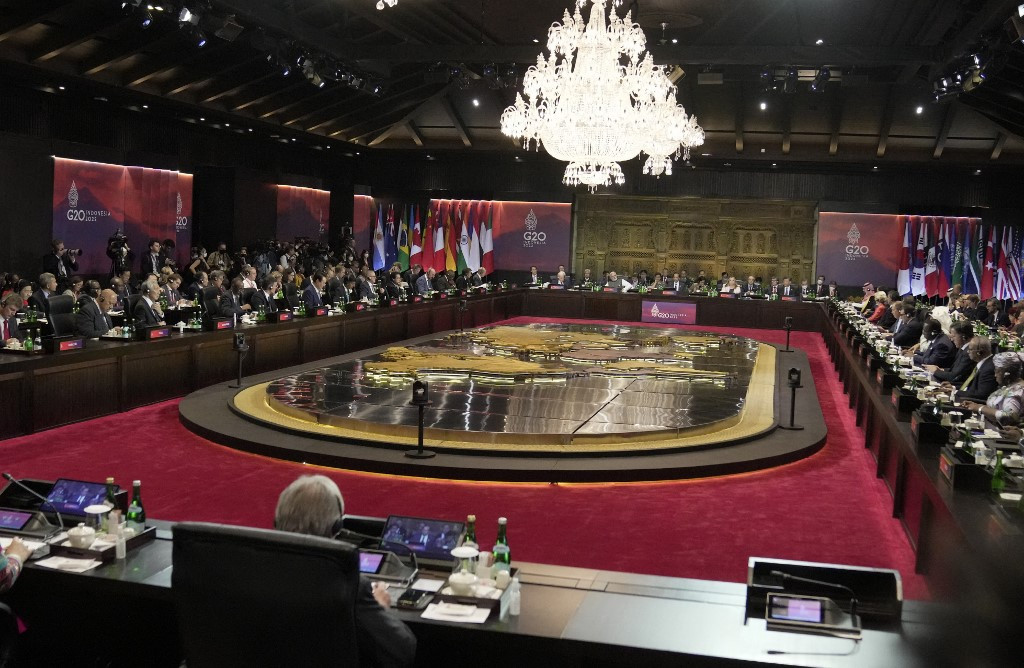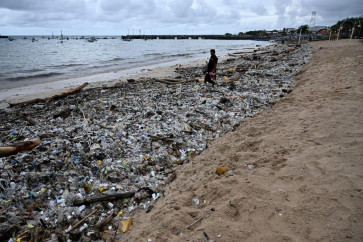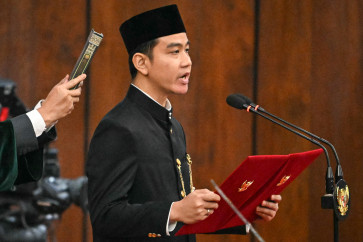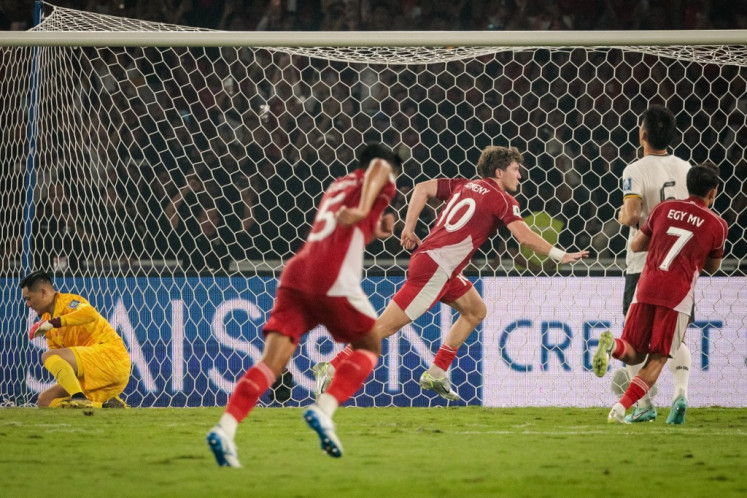G20 still relevant but G7 should be ‘open to change’
While Indonesia’s Group of 20 presidency has come and gone, experts insist the forum still has merit – if only the Group of Seven is willing to back a more equitable world order.
Change text size
Gift Premium Articles
to Anyone


After the dust has settled on Indonesia’s turbulent yet successful Group of 20 presidency this year, analysts suggest that the global economic forum and its influential Group of Seven clique remain important as multilateral tools for addressing the world’s biggest challenges.
However, future progress would be contingent on whether the G7 is open to change, listens to the concerns of other G20 member states and is willing to regain their trust.
The Ukraine conflict, which started with Russia’s invasion in February, dominated the two-day G20 Summit in Bali last month, to the frustration of members that wanted more attention on global economic woes.
But the forum had managed to push out a much-awaited joint communiqué and several other negotiated texts that are expected to inform the world on how to emerge from a crippling global economic downturn, despite concerns the war had resulted in an irreconcilable split within the G20.
Some observers called it a “success on all accounts”, while others tempered their expectations and pointed to the fact that the convening of world leaders on the Island of the Gods was in itself a feat amid global uncertainties.
Isabel Weininger, a senior policy advisor on Southeast Asia from the Konrad-Adenauer-Stiftung (KAS) German think tank, pointed to Indonesia’s convening power as proof that “diplomacy still works” given the circumstances.
She noted that the G20 and the G7, which Indonesia and Germany chaired this year, respectively, used different but complementary approaches in diplomacy, which ultimately led to the success of this year’s G20 proceedings.
The G7, comprising well-established and industrialized economies, was all about coming up with a united voice, while the G20 was about providing an inclusive forum.
Canada, Japan, the United Kingdom and the United States are among the G7 member states, while the European Union is a “non-enumerated member”.
Read also: After the G20 Summit, what’s next for Indonesia?
“The G20 is really inclusive, giving voices to many developing countries and emerging powers and bringing them to the table – and not on the menu,” Weininger said at a panel discussion cohosted by KAS and the Centre for Strategic and International Studies (CSIS) on Tuesday.
New world order
Criticism of the G20 over the past few years has centered on its inherently exclusive nature of convening the world’s biggest economies, but this year Indonesia made it a point to represent the interests of the developing world, whose population largely live on the whims of the few that dictate the direction in which the world moves.
For instance, G20 members agreed at last month’s summit to pursue efforts to limit the rise in global temperatures to 1.5 degrees Celsius, including speeding up efforts to phase down the unabated use of coal. But it remains to be seen whether G7 nations would make good on their climate financing pledges.
As it stands, the G7 and the G20 are seemingly pulling the global rules-based order in different directions, said Manjeet Kripalani, executive director of India’s Gateway House think tank.
While the G7 is composed of “rule makers” who want to preserve the status quo, other G20 states want to create global rules that are more flexible and accessible to all.
But now the onus is on the G7 to show good faith and regain the trust of other G20 members by fulfilling its promises on climate financing, lest it wants to preserve some of the post-war world order it created, she said.
“Don’t begrudge the new world from writing equitable, inclusive and transparent new rules for a bright global future. Instead, sit at the same table and make these new rules jointly,” the analyst said during Tuesday’s talks.
Read also: Indonesia hopes for policy continuity under Indian G20 presidency
Indonesia was the first of a run of G20 presidents from the world of emerging economies. New chair India, successor Brazil and the subsequent president South Africa, which takes over in 2025, will complete the first rotation series.
In an interview published in The Jakarta Post’s special edition the “G20 Digest”, Foreign Minister Retno LP Marsudi made it clear that Indonesia hoped its work and focus on the interests of developing and least developed nations would find continuity in the next few G20 presidencies.
Indian Prime Minister Narendra Modi, who oversees his nation’s G20 presidency, stated in a Thursday declaration in Indian newspapers that India would aim to depoliticize the global supply of food, fertilizer and medical products so that geopolitical tensions did not lead to global disruptions.
‘Overextended’
Meanwhile, some analysts bemoaned the loss of focus at this year’s G20 meetings, compared with earlier years that had given the forum its clout for managing global crises.
Senior economist Djisman Simandjuntak, who is also chair of the board of directors for CSIS Indonesia, noted how the first three summits of the G20, from 2008 to 2009, were “very effective” in managing the impacts of the 2008 global financial crisis, compared with more recent summits.
Djisman said the global economic forum was no longer “productive” due to it being overextended by the breadth of topics and issues that it had to address.
“What is more useful is to convene the G20 whenever there is a crisis, rather than addressing everything every time the G20 meets,” Djisman said during the discussion.
Indonesia’s G20 presidency issued a sprawling 1,186 pages of outcome documents, comprising the G20 Bali Leaders’ Declaration, several communiqués and chair summaries, as well as pages of notes and annexes detailing the work produced throughout the year.









